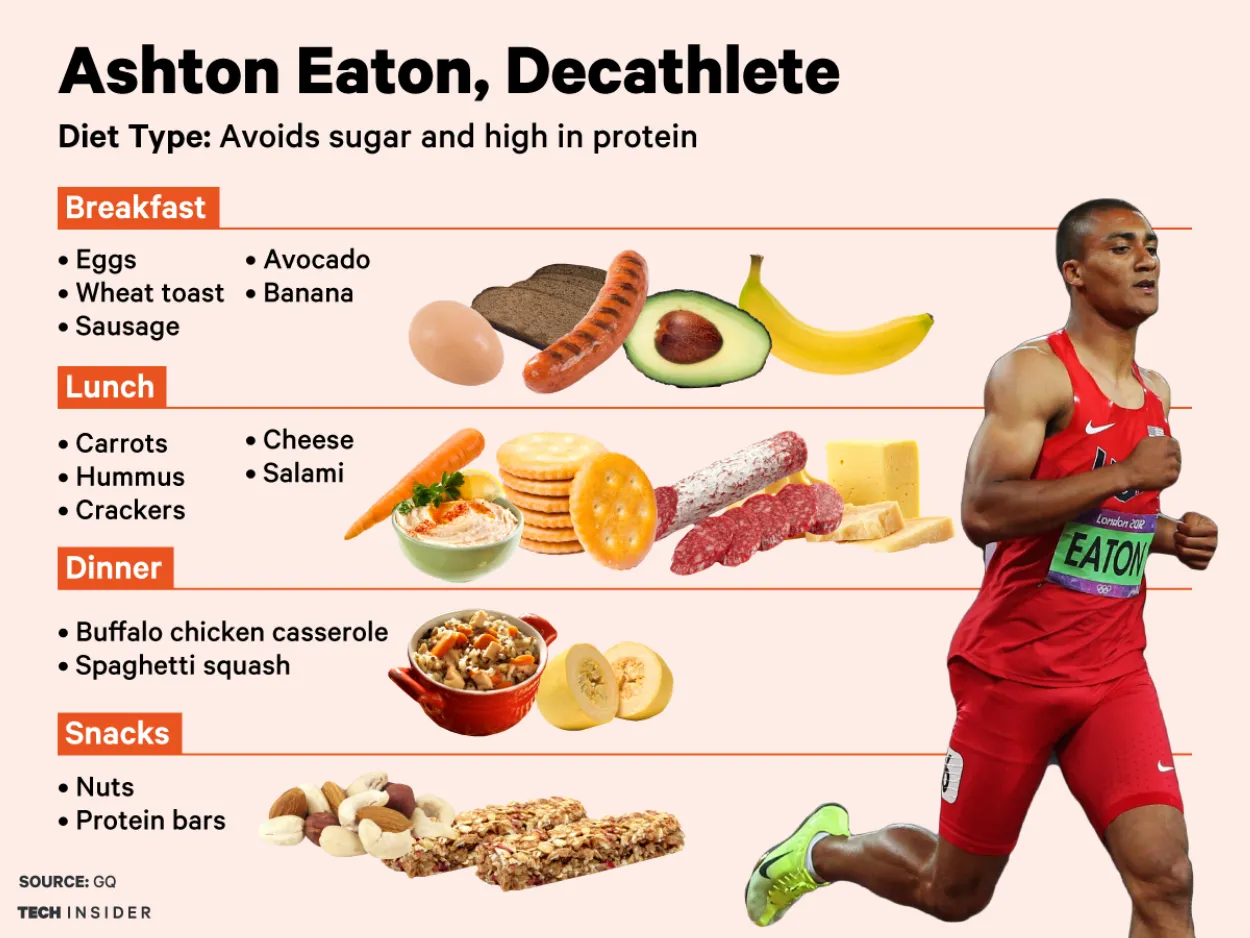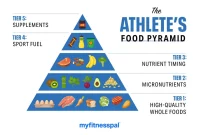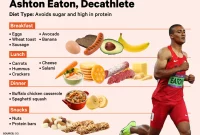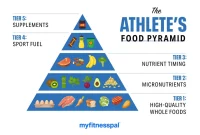In order to achieve peak athletic performance, it is crucial to fuel your body with the right kind of nutrients. Certain foods, known as power foods, possess the ability to enhance energy levels, improve endurance, and promote muscle recovery. From nutrient-dense fruits to protein-packed sources, we explore the top power foods that can take your athletic performance to the next level.
Superfoods Every Athlete Should Know
Athletes need a well-balanced diet to fuel their bodies for peak performance. Including superfoods in their meals can provide them with essential nutrients and boost their overall health. Here are some power foods that every athlete should know:
1. Quinoa
Quinoa is a complete protein source that contains all nine essential amino acids. It is also rich in fiber, iron, and magnesium. Adding quinoa to your diet can help with muscle recovery and provide sustained energy.
2. Spinach
Spinach is packed with vitamins and minerals, including iron, calcium, and vitamin C. It helps improve muscle function, boosts immunity, and reduces inflammation. Include spinach in salads, smoothies, or sautéed with other vegetables for a nutritional punch.
3. Blueberries
Blueberries are a great source of antioxidants, which can help reduce muscle damage caused by intense exercise. They also contain vitamins C and K, manganese, and fiber. Enjoy them as a snack, in smoothies, or add them to your breakfast bowl.
4. Salmon
Salmon is rich in omega-3 fatty acids, which have anti-inflammatory properties and help support heart health. The high protein content aids in muscle repair and recovery. Include grilled or baked salmon in your meals at least twice a week.
5. Chia Seeds
Chia seeds are a fantastic source of omega-3 fatty acids, fiber, and antioxidants. They provide sustained energy, promote hydration, and aid in post-workout recovery. Sprinkle them on your yogurt, oatmeal, or add them to your smoothies.
Conclusion
Integrating superfoods like quinoa, spinach, blueberries, salmon, and chia seeds into an athlete’s diet can have numerous benefits. These nutrient-dense foods provide the necessary fuel for optimal performance and support overall well-being. Incorporate them into your meals and experience the positive impact on your athletic performance!
The Importance of Protein in Muscle Building
Protein plays a crucial role in muscle building and is an essential nutrient for athletes looking to enhance their athletic performance. Whether you are a professional athlete or a regular gym-goer, understanding the importance of protein can significantly impact your training and results.
Protein is made up of amino acids, which are the building blocks of muscles. When consumed, protein gets broken down into these amino acids, which then help repair and rebuild the damaged muscle tissues after intense workouts. Consuming an adequate amount of protein allows for proper recovery, leading to faster muscle growth and increased strength.
In addition to muscle repair and growth, protein also aids in maintaining a positive nitrogen balance in the body. Nitrogen is essential for synthesizing new proteins and preventing muscle breakdown. By consuming enough protein, you can promote a state of anabolism where muscle growth exceeds muscle breakdown, resulting in overall muscle gain.
Furthermore, protein is known for its satiating effect, meaning it keeps you feeling full for longer. This can be particularly beneficial for athletes aiming to manage their weight while building muscle. Protein-rich foods can help curb cravings, reduce overeating, and support healthy body composition.
When it comes to protein sources, it’s important to choose high-quality options. Lean meats, poultry, fish, eggs, dairy products, legumes, and plant-based sources like tofu and quinoa are excellent choices rich in essential amino acids. Incorporating a variety of protein sources into your diet can ensure you receive a complete range of amino acids necessary for optimal muscle growth.
However, it’s not just about the quantity of protein but also the timing. Consuming protein within 30 minutes to an hour after exercise can maximize muscle recovery and stimulate muscle protein synthesis. This timeframe is often referred to as the “anabolic window.” Therefore, including a protein-rich snack or meal post-workout is crucial for muscle building.
In conclusion, protein is an essential nutrient for muscle building and athletic performance. It aids in muscle repair, growth, maintaining a positive nitrogen balance, and supports healthy body composition. By incorporating high-quality protein sources into your diet and consuming them at the right time, you can optimize your muscle-building potential and enhance your athletic capabilities.
Carbohydrate Strategies for Energy
When it comes to peak athletic performance, proper nutrition plays a crucial role. Among the various nutrients, carbohydrates are especially important as they provide the primary source of energy for the body. Here are some effective carbohydrate strategies to maximize your energy levels and optimize your performance:
1. Timing is Key
It is essential to consume carbohydrates at the right times to ensure proper energy supply during physical activity. Prioritize consuming carbohydrates within 2-4 hours before your workout or competition, as this allows enough time for digestion and absorption.
2. Choose High-Quality Carbohydrates
Focus on consuming complex carbohydrates such as whole grains, fruits, vegetables, and legumes. These carbohydrates provide sustained energy due to their fiber content, which slows down digestion and prevents blood sugar spikes and crashes.
3. Fuel During Prolonged Exercise
For activities lasting longer than 60-90 minutes, consider consuming additional carbohydrates during exercise. Sports drinks, energy gels, or easily digestible snacks like bananas or granola bars can provide a quick and convenient source of energy.
4. Optimize Post-Exercise Recovery
After intense physical activity, replenishing your carbohydrate stores is crucial. Aim to consume a combination of carbohydrates and protein within 30 minutes to 2 hours post-exercise to enhance recovery and restore glycogen levels.
5. Individualize Your Intake
The ideal carbohydrate intake varies from person to person, depending on factors such as body weight, activity level, and goals. Consult with a sports nutritionist or dietitian to determine your specific carbohydrate needs for optimal performance.
The Myths and Facts About Sports Supplements
When it comes to enhancing athletic performance, many athletes turn to sports supplements. These products claim to boost energy, increase strength, and improve overall performance. However, there are several myths and misconceptions surrounding sports supplements that need to be debunked.
Myth: Sports supplements are essential for peak performance
Fact: While sports supplements can provide certain benefits, they are not the be-all and end-all for peak athletic performance. Adequate training, proper nutrition, and sufficient rest are crucial factors that should not be overlooked.
Myth: The more supplements, the better the results
Fact: Taking excessive amounts of supplements does not necessarily lead to better results. In fact, consuming too much can have negative effects on your health and performance. It’s important to follow recommended dosages and consult with a healthcare professional before adding any new supplements to your regimen.
Myth: All sports supplements are safe
Fact: Not all sports supplements undergo rigorous testing and regulation. Some may contain harmful substances or be contaminated. It’s vital to research the reputation and quality of the supplements you are considering and opt for those from reputable brands that prioritize safety and quality control.
Myth: Supplements can replace proper nutrition
Fact: Sports supplements should never be seen as a replacement for a well-rounded, balanced diet. Whole foods should always be the foundation of an athlete’s nutritional intake. Supplements should only be used to complement a healthy diet when necessary.
Myth: Supplements guarantee immediate results
Fact: Sports supplements are not magic bullets that will instantly improve performance. They are designed to support training and nutrition efforts over time. Consistency and patience are key when incorporating supplements into your regimen.
It’s crucial to approach sports supplements with a critical mindset and make informed decisions based on reliable information. Always consult with professionals, such as registered dietitians or sports physicians, to determine if a particular supplement is suitable for you and your specific athletic needs.
Hydration and Electrolyte Balance
Proper hydration and electrolyte balance are essential for peak athletic performance. Athletes who fail to maintain adequate hydration levels may experience decreased endurance, muscle cramps, and a decline in overall performance.
When engaging in rigorous physical activity, the body loses water through sweat. It is crucial to replenish this lost fluid to prevent dehydration. Water is the primary source of hydration and should be consumed before, during, and after exercise.
In addition to water, athletes should also consider consuming sports drinks that contain electrolytes. Electrolytes, such as sodium and potassium, are minerals that help maintain the balance of fluids in the body and aid in muscle function. Sports drinks provide a quick and easy way to replenish electrolytes lost during intense workouts.
Furthermore, incorporating certain power foods into an athlete’s diet can help enhance hydration and electrolyte balance. Fruits like watermelon, oranges, and bananas are high in water content and contain electrolytes like potassium. Consuming these fruits pre and post-workout can help maintain hydration levels and replenish electrolytes naturally.
Another power food for hydration is coconut water. Rich in electrolytes, especially potassium and magnesium, this natural beverage is a great substitute for sports drinks. It provides essential hydration while also offering a host of other health benefits.
It is important to remember that individual hydration needs may vary depending on factors such as body size, activity level, and environmental conditions. Monitoring urine color is a simple way to gauge hydration levels – clear or light yellow urine generally indicates good hydration, while dark-colored urine suggests dehydration.
To optimize athletic performance, athletes should prioritize hydration and electrolyte balance. By incorporating water, sports drinks, and power foods rich in electrolytes into their routine, athletes can ensure adequate hydration levels and support optimal physical performance.
Conclusion
In conclusion, incorporating power foods into an athlete’s diet can significantly enhance their overall performance. The high nutritional value, energy-boosting properties, and ability to promote muscle recovery make these foods essential for peak athletic performance. By fueling the body with the right nutrients, athletes can achieve optimal results and reach their full potential.




